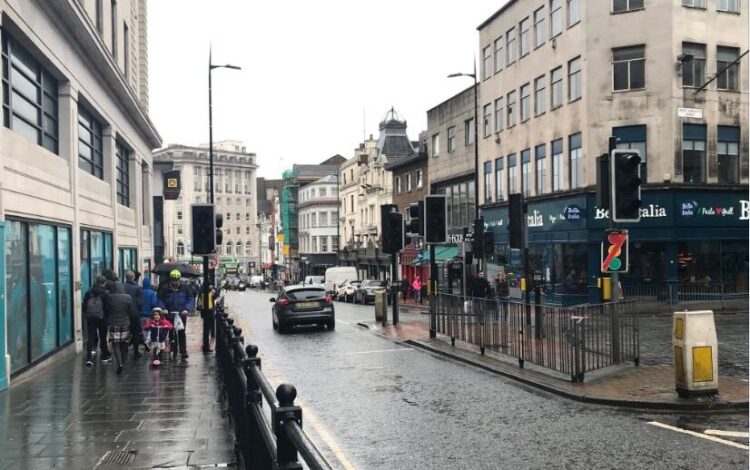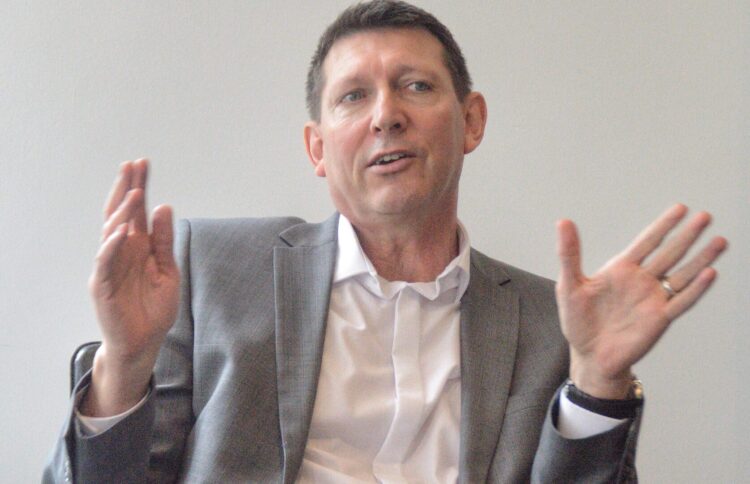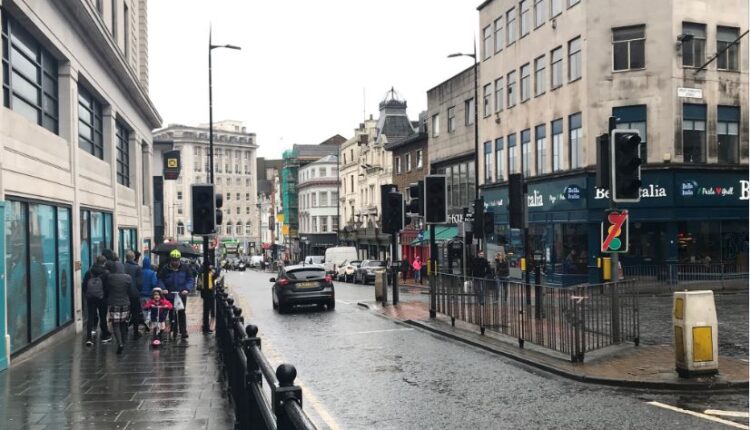Chief executive of private sector lobby group Downtown in Business, Frank McKenna, said a congestion charge could derail Liverpool’s recovery from the pandemic. Tony McDonough reports

Plans to introduce a congestion charge in Liverpool city centre are “wrong-headed” says local business leader Frank McKenna.
It was reported last week that Liverpool City Council is considering implementing a congestion charge in the city centre in an attempt to cut emissions and ill health caused by pollution.
But Mr McKenna, chief Executive of private sector lobby group Downtown in Business, said the city already faces a big challenge in recovering from the economic impact of the COVID-19 pandemic and that this was the “wrong time” for such a charge.
READ MORE: Liverpool can’t afford to get the congestion charge wrong
“I appreciate that there is huge pressure on our politicians to address the climate emergency – and I am certainly not a climate change denier,” he said. “However, congestion charging is a very blunt instrument.
“It will have minimal impact on the environment, and would cause problems for the economic recovery we are hoping to achieve post-pandemic. Indeed, I would also say that congestion is not a major issue in the city.
“If the highways agencies and transport authorities got their act together and planned road works and road improvements more strategically and efficiently, there would be few, if any, traffic jams in the city.”

Mr McKenna said the city needed to consider other ideas before opting for a congestion charge. He added: “Why don’t we re-introduce bus lanes, particularly during peak times. We need an ambitious roll out of charging points to encourage people to buy electric or hybrid vehicles.
“The new Merseyrail fleet and the hydrogen-powered buses are a welcome addition to our public transport offer, but in an economy that will still be heavily reliant on the visitor economy, the timetabling of late- night services would need to dramatically improve.
“I would also hope that a look into the future of mobility over the next 20 years would allow us to return to the debate about the practicalities of a modern, 21st century mode of transport in the form of a light rail, or tram, system.
“However, all of this, and more, needs to be done before considering placing an additional tax on the motorist. Liverpool will need every advantage in can get to attract the necessary jobs and investment into the city, if we are not to suffer an economic hangover in the city for several years.”

